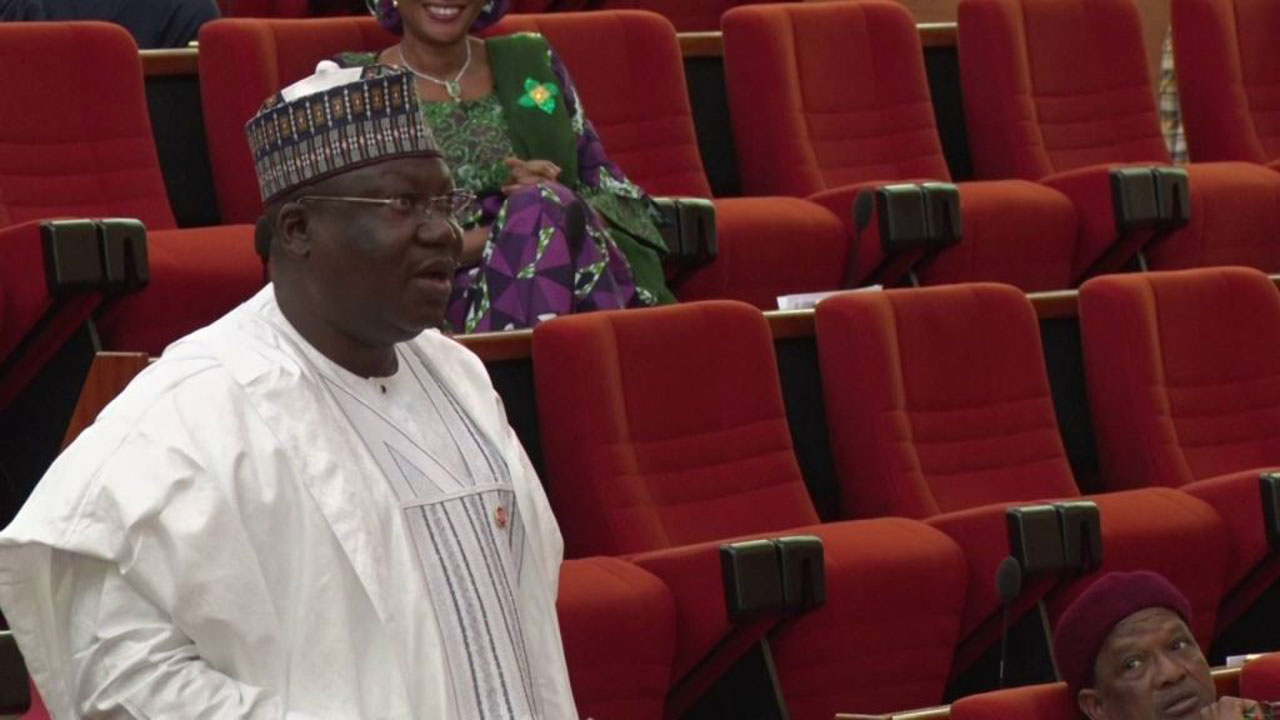- FG Finally Moves to Cripple Freedom of Speech
The bill seeking death by hanging, life in jail, and five years’ imprisonment for hate speech was reintroduced on Tuesday for reading.
The lawmakers are expected to debate the details of the bill on another legislative day.
If passed into law, persons found guilty of hate speech would be prosecuted under the act ‘prohibiting hate speech.’
Deputy chief whip, Aliyu Abdullahi, representing Niger North Senatorial District, had attempted to push the same bill in 2018 under the leadership of former Senate President, Bukola Saraki, but failed as most lawmakers kicked against the bill.
Opposition lawmakers kicked against it again, said it was a move to gagged the emergence of new media and social media interactions.
Senator Abdullah, who sponsored the bill, said: “A person who uses, publishes, presents, produces, plays, provides, distributes and /or directs the performance of, any material, written and/or visual which is threatening, abusive or insulting or involves the use of threatening, abusive or insulting words or behaviour commits an offence if such person intends thereby to stir up ethnic hatred, or having regard to all the circumstances, ethnic hatred is likely to be stirred up against any person or persons from such an ethnic group in Nigeria.
“Any person who commits an offence under this section shall be liable to life imprisonment and where the act causes any loss of life, the person shall be punished with death by hanging,” he said.
The bill proposes five-year jail term or a fine of N10 million or both for harassment on the basis of ethnicity and racial contempt.
According to him, “a person who subjects another to harassment on the basis of ethnicity for the purposes of this section where, on ethnic grounds, he unjustifiably engages in a conduct which has the purpose or effect of: (a) violating that other person’s dignity; or (b) creating an intimidating, hostile, degrading, humiliating or offensive environment for the person subjected to the harassment shall be guilty of the offence of hate speech.”
He said that a “conduct shall be regarded as having the effect specified in subsection (1)(a) or (b) of this Section if, having regard to all the circumstances, including in particular the perception of that other person, it should reasonably be considered as having that effect.
“A person who subjects another to harassment on the basis of ethnicity commits an offence and shall be liable on conviction to an imprisonment for a term not less than five years, or to a fine of not less than N10 million, or to both.“
Enyinnaya Abaribe, the Senate minority leader, said there were already laws that deal with issues the proposed bill seeking to address.
He said: “There is no speed for this bill to be passed. The first reading of a bill is automatic. We can’t make a comment on what is still at the first stage.
“What I can assure you is that this Senate can’t be a party to removing the rights of Nigerians under any form. Section 39 of the Constitution talks about our freedom as citizens. The 9th Senate will not abridge your rights.
“I don’t think Nigerians who fought and paid the supreme price to entrench this democracy will easily give it away and make us go back to the dark days. Be rest assured that when we get to that point, we will stand for the people. Every bill that passes here must pass through the rigours to ensure that it protects the rights of over 200 million Nigerians.
“We have a plethora of laws that can be used to drive the question of a free society. While the social media can be good, it can also be bad. I am a victim of the social media.
“As much as there is freedom, yours stops where another person’s starts. We urge Nigerians not to propagate falsehood or fake news. Our job is to guarantee the freedoms and rights of both sides,” he said.
Speaking on existing laws, Nwaruruahu Shield, said it is irrelevant to pass into law a new anti-social media law when there are laws in place for a similar thing.
He said: “It is imperative to note that there are existing provisions in the Nigerian constitution which define in plain terms about defamation: A defamation matter is defined in Section 373 of the Criminal Code as a matter likely to injure the reputation of any person by exposing him to hatred, contempt or ridicule or likely to damage any person in his profession or trade by injury to his reputation.
“Seeing that Nigeria has more than enough laws such as the Cybercrimes 2015 Act and other existing laws, it has become obvious that what the sponsor(s) (covertly and overtly) of this bill seek to do is to gag the social media and dictate to us what we can say and what not,” he said.


 Forex2 weeks ago
Forex2 weeks ago


 Naira1 week ago
Naira1 week ago
 Naira4 weeks ago
Naira4 weeks ago
 Company News4 weeks ago
Company News4 weeks ago




 Naira2 weeks ago
Naira2 weeks ago
 Billionaire Watch1 week ago
Billionaire Watch1 week ago




 Naira3 weeks ago
Naira3 weeks ago




 Naira1 week ago
Naira1 week ago




















